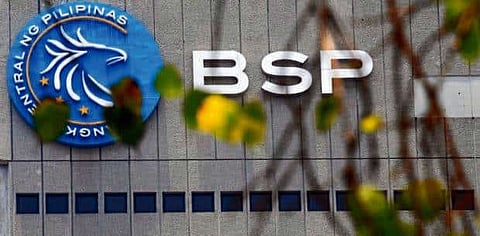
- NEWS
- the EDIT
- COMMENTARY
- BUSINESS
- LIFE
- SHOW
- ACTION
- GLOBAL GOALS
- SNAPS
- DYARYO TIRADA
- MORE

The country’s foreign investment transactions posted net outflows of $27 million in June which was a reversal of the $43 million net inflows seen in May, data from the Bangko Sentral ng Pilipinas (BSP) showed Thursday.
The BSP said net outflows was the result of $1.1 billion in gross outflows of foreign investments exceeding the $1 billion gross inflows in June coursed through authorized agent banks.
Broken down, gross outflows rose by six percent or $60 million as most foreign investments amounting to $597 million or 55.8 percent share was redirected to the US.
Meanwhile, gross inflows declined by one percent or $10 million in June compared to $1.1 billion in May.
Bulk of foreign investments
The BSP said the bulk of foreign investments or 52.8 percent went to peso-denominated government securities with a total registered value of $551 million in June.
The remaining 47.2 percent or $492 million was invested in stocks listed with the Philippine Stock Exchange.
Most of the equity investments went to holding banks, transportation providers, property developers, and electricity, energy and water firms.
Countries with the most investments in the Philippines included the United Kingdom, the United States, Singapore, Luxembourg and Switzerland. They collectively contributed 86.9 percent of the total inflows.
From January to June, however, the country saw net inflows of $81 million which was a reversal of the $804 million recorded in the same period last year.
Rizal Commercial Banking Corp. chief economist Michael Ricafort said foreign investments declined in June as investors worried about economic uncertainties from geopolitical risks in the Philippines and its regional neighbors.
Geopolitical risks
“Geopolitical risks increased volatility in the global and local markets in recent months, such as China’s water cannon attacks on some Philippine ships in disputed waters recently and the Israel-Iran tensions,” he said.
Moving forward, Ricafort said the equity market could grow as companies are projected to gain more profits due to possible lower prices of goods and services.
“Inflation eased again to already within the BSP’s inflation target for the seventh straight month. Inflation could ease further due to reduced tariff rate on imported rice, thereby could justify local policy rate cuts in the coming months,” he said.
BSP Governor Eli Remolona Jr. had said Wednesday that a reduction in its policy rate by a total of 50 basis points this year is “possible.”
